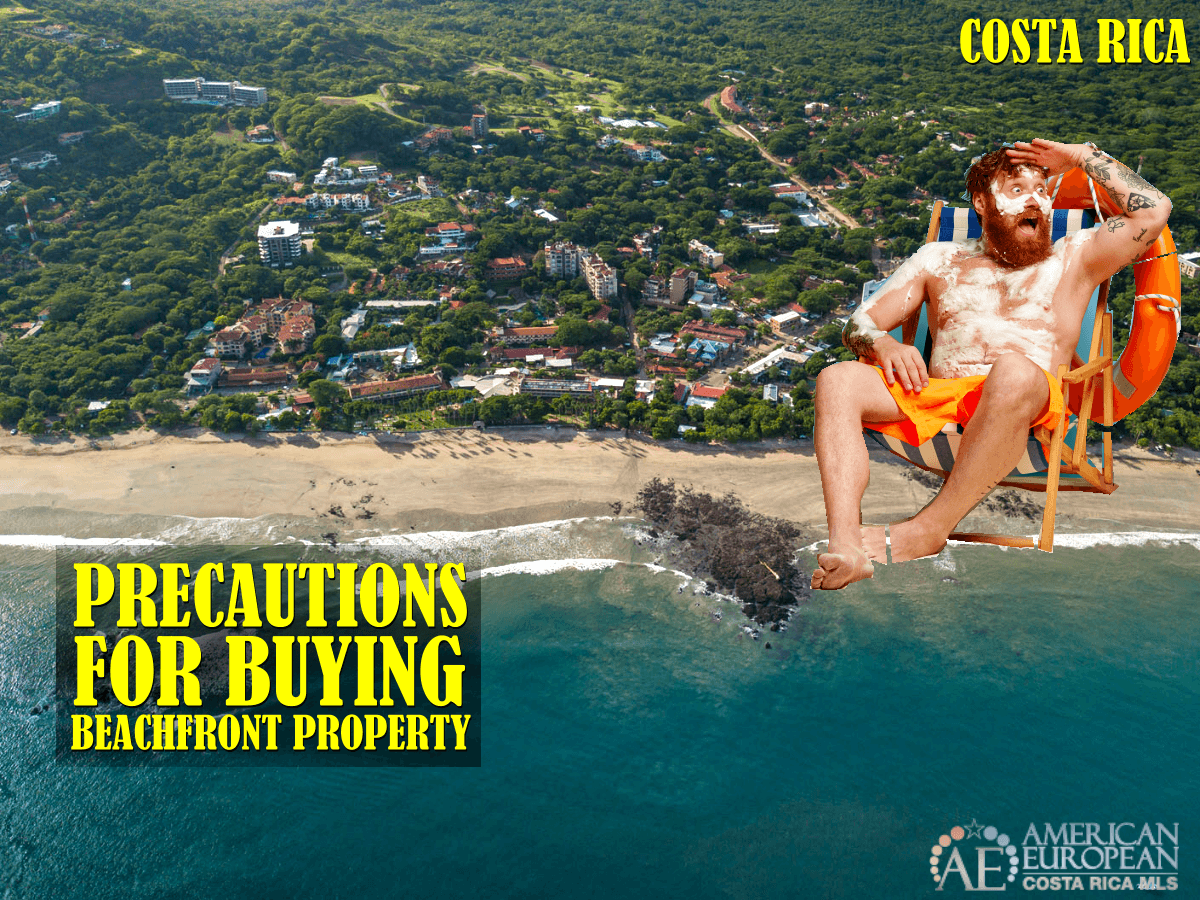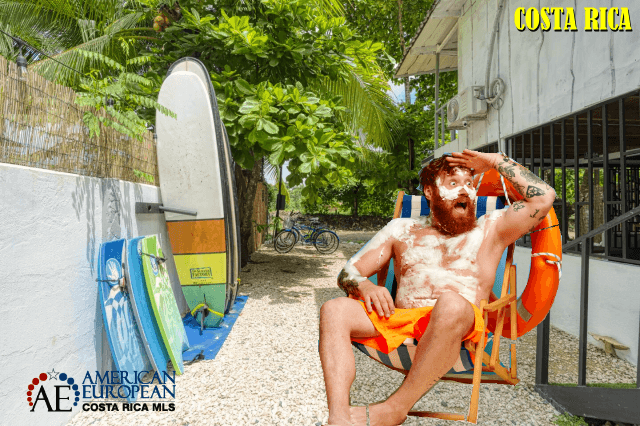Estimated Reading Time: 4 Minutes
Costa Rican beachfront property is located in the Maritime Zone, or ZMT (Zona Maritima Terrestre), and you should know about certain restrictions before purchasing. We have very little titled beachfront property, so this is very important information if you want to live on the beach.
When buying a beachfront home, or beachfront home, ask our affiliate beach real estate agents how this works. Or read this blog first. Second, you should use any of our recommended Awesome Closing Attorneys. Try using an attorney who specializes in maritime zoning law.
Costa Rica beachfront property in the Maritime Zone of Costa Rica has certain restrictions you should know about.

A Canon
Although local governments will collect a land use tax known as a canon from occupants of land – beachfront property – located in the maritime zone, it does not mean a concession has been granted.
As such, the payment of a canon is simply a recognition of the right to possession. This, in turn, doesn’t give you any rights to build on that land. Learn more about this here; use Deepl.com for an expert translation.
No granting of concessions
The concessions for maritime zone beach property in Costa Rica cannot be granted to:
- Foreigners who have not been residents for at least five years
- Companies with bearer shares
- Foreign companies based abroad
- A company set up in Costa Rica exclusively for foreigners.
- A company with more than fifty percent foreign capital (ZM Art. 47)
Concessions can be forfeited
The concessions on a maritime zone beach property in Costa Rica can be forfeited for the following reasons:
- Failure to apply for an extension of a concession on time
- The forfeiture of rights by the interested parties
- The death or legal absence of the concession holder with no heir
- Not abiding by the established obligations of Article 51
- Cancellation of the concession (ZM Art. 52)
Cancelation of a concession
The ICT (Costa Rica Bureau for Tourism) can cancel a concession on maritime zone Costa Rica beachfront property for
- Nonpayment of the yearly canon or royalty
- Breach of contract (e.g., use of the land for purposes other than those expressly stated by ICT)
- Violation of the ordinances of the law that grants the concession
- Impediment of the use of the public right of way
- Other causes that this law establishes (ZM Art. 53)
Overall, an investment in Costa Rica beachfront property regulated by the Maritime Zoning Law requires extra caution and thorough investigation. In reality, ambiguities exist within the written law, so property rights may also change as regulations are created and amended.
There are no guarantees and no foolproof way around the law. Even if you get a concession, there are no guarantees that the concessions will be renewed or that the price of the concession or the yearly canon will be within reason. Nonetheless, it’s rare for a municipality to refuse to renew a concession.
Accept the risks
The fact remains that you are not purchasing beachfront real estate; you are leasing it. When you buy, you must be willing to accept that risk. Also, see information about squatters in Costa Rica. Sometimes, a foreigner has made it through the concession process only to lose all or a portion of the property later to squatters.
Due diligence
Make sure your closing attorney does your due diligence:
- examines the Municipality Records and records,
- verifies the seller’s ownership status,
- and also verifies general tax and leasing records.
Remember that having titled land or a legal concession may be worthwhile if you plan to build your home on the beach. Then, you want to ensure the local government will allow you to operate within the maritime zoning.
Looking to purchase a beachfront property? Or contact our affiliated real estate agent in the area you want to buy.



















